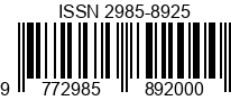Analisis Childfree Choice Dalam Perspektif Ulama’ Klasik dan Ulama’ Kontemporer
DOI:
https://doi.org/10.54298/tarunalaw.v1i01.73Keywords:
Childfree, Classical Ulama, Contemporary UlamaAbstract
Childfree is a term for people who agree to decide not to have children. The term childfree can be defined as a view of a husband and wife who decide not to have children. The decision to choose childfree in household life cannot be separated from the role of husband and wife. The method used in this study is qualitative, with a comparative approach, namely comparing two points of view, namely according to classical and contemporary Islamic scholars. While the type of research used is Library Research, in the sense that all data sources come from written materials related to the topics discussed. The results of the study show that classical scholars do not forbid married couples who agree not to have children (offspring). Because this is confirmed by 'Azl whose law is permitted by Imam Ghazali, contemporary scholars also allow it if husband and wife agree because of certain benefits. So childfree is not included in the prohibited acts, because every married couple has the right to plan and manage household life including having children.
References
Dea Erlinda Sari, ‘Makian Terhadap Perempuan Dalam Komentarpostingan Topik Childfree Di Facebook’ (Undergraduate, Universitas Brawijaya, 2021). 20-21.
Fauzi, A. (2017). Keluarga Berencana Perspektif Islam Dalam Bingkai Keindonesiaan. Keilmuan Dan Teknologi,
Fenny, Dinamika Psikologis Pasangan Suami Istri Yang Belum Memiliki Anak (Studi Kasus Kecamatan Kikim Timur, Kabupaten Lahat, Provinsi Sumatera Selatan), (Skripsi Sarjana,Fakultas Ushuluddin, Adab dan Dakwah, IAIN Bengkulu, 2019).
Hidayati. Nuril, Teori Feminisme: sejarah, perkembangan dan relevansinya dengan kajian keislaman kontemporer, Jurnal Harkat: Media Komunikasi Gender, 14 (1), 2018
https://www.popbela.com/relationship/married/anatasia-anjani/alasan pasangan memilih childfree? Page all diakses pada tanggal 10 desember 2022.
Hukum Asal Childfree dalam Kajian Fiqih Islam | NU Online, https://nu.or.id/nikah-keluarga/hukum-asal-childfree-dalam-kajianfiqih-islam-CuWgp. (21 September 2022)
Imam Abi Hamid Muhammad Ibn Muhammad al-Ghazali, Ihya’ Ulum al-Din, Kitab Adab al-Nikah (Beirut: Dar al-Kutub, 2001)
Jumantoro. Totok, Kamus Ilmu Hadis,Jakarta: Bumi Aksara, 1997.Khasanah. Uswatul & Muhammad Rasyid ridho. (2021). Childfree perspektif hak reproduksi perempuan dalam islam, Al-Syakhsiyyah Journal of Law and Family Studies, Vol.3 No.2 Mariah.
Michiko Maeyama adalah Pemimpin Redaksi Sarasa, majalah untuk komunitas Jepang di JakartaMufti. Novie Oktaviane, Heal Your Self. Bandung: CV.IDS,2019.
Muhammad, Husein, Fiqh Perempuan Refleksi Kiai atas Tafsir Wacana Agama dan Gender Yogyakarta: IRCiSoD, 2019.
Nasiri, Nasiri. “Marriage in Morocco: A Practices of The Mudawwanatul Usrah Law in The Land of Guardians.” International Journal of Islamic Thought and Humanities 1, no. 1 SE-Articles (March 1, 2022): 27–39. https://doi.org/10.54298/ijith.v1i1.13.
Ngewa . Herviana Muarifah, Peran Orang tua dalam pengasuhan anak, Jurnal Ya Bunayya, Vol. 1 No. 1 Desember 2019,
Parapuan, ‘Pendapat Pakar Soal Keputusan Childfree, Apakah Termasuk Hal Yang Egois?’, Tribunnews.Com, 2022
Patnani, Miwa, Bagus Takwin, and Winarini Wilman Mansoer. “Bahagia Tanpa Anak? Arti Penting Anak Bagi Involuntary Childless.” Jurnal Ilmiah Psikologi Terapan 9, no. 1 (2021): 117. https://doi.org/10.22219/jipt.v9i1.14260.
Sujono, Imam. “Legal Education about Marriage of Women without Divorce Certificate and Previously Unregistered Marriage.” International Journal of Law Society Services 2, no. 2 (October 24, 2022): 48. https://doi.org/10.26532/ijlss.v2i2.22410.
———. “Legal Review of Marriage for Divorced Women Outside the Religious Courts.” International Journal of Islamic Thought and Humanities 1, no. 1 (March 1, 2022): 1–16. https://doi.org/10.54298/ijith.v1i1.10.
Teresa. Ghea, Motif dan generativitas Individu Childlessness, (skripsi pada Program Studi Psikologi fakultas Psikologi tahun 2014.
Ulfa. Mufida, “Mengkaji pilihan Childfree”( makalah yang diajukan kepada Lembaga Penjaminan Mutu UIN K.H Achmad Siddiq Jember untuk dipresentasikan dalam seminar diskusi periodic dosen), 2021.
Victoria Tunggono, Childfree and Happy, ed. Rifai Asyhari (Yogyakarta: Buku Mojok Group, 2021), 13.
Downloads
Published
How to Cite
Issue
Section
License
Copyright (c) 2023 Rudi Adi, Alfin Afadi

This work is licensed under a Creative Commons Attribution-ShareAlike 4.0 International License.
Authors who publish with this journal agree to the following terms:
- Authors retain copyright and grant the journal right of first publication with the work simultaneously licensed under a Creative Commons Attribution-ShareAlike that allows others to share the work with an acknowledgement of the work's authorship and initial publication in this journal.
- Authors are able to enter into separate, additional contractual arrangements for the non-exclusive distribution of the journal's published version of the work (e.g., post it to an institutional repository or publish it in a book), with an acknowledgement of its initial publication in this journal.
- Authors are permitted and encouraged to post their work online (e.g., in institutional repositories or on their website) prior to and during the submission process, as it can lead to productive exchanges, as well as earlier and greater citation of published work (See The Effect of Open Access).














